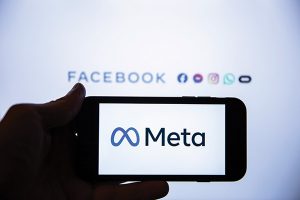The economy is weakening, and so is demand for advertising — at least, that’s how Facebook parent Meta Platforms Inc justified its first-ever quarterly decline in revenue last week. Social-media rivals Snap Inc and Twitter Inc echoed the gloom, worsening this year’s share-price slump in the sector.
Strange, then, that some of advertising’s more old-school players in Europe, from “Mad Menâ€-style agencies to billboard operators, are reporting a more upbeat experience. It suggests there are deeper shifts happening in tech and media after Covid-19 and the Ukraine war — and that the “Math Men,†as author Ken Auletta styled them, don’t have all the answers.
Paris-based Publicis SA, among the world’s four biggest agencies and owner of Leo Burnett and Saatchi & Saatchi, posted a 21% revenue increase in the second quarter and upgraded its sales outlook for the year. Chief Executive Officer Arthur Sadoun, who took over in 2017 from industry icon Maurice Levy, said the firm was “ready†to cope with a potential economic slowdown.
And while it was a patchy quarter for some broadcast and print publishers, French firm JCDecaux SA, the world’s biggest outdoor advertiser, reported a 22%
increase in underlying quarterly sales growth as its array of billboards, bus shelters and other street furniture kept pulling in cash. The firm expects more revenue growth in the third quarter.
This divergence is ironic given these are the kinds of firms that have been eclipsed by Big Tech’s ability to collect huge amounts of data, capture digitally native Gen-Z eyeballs and swallow a huge slice of marketing spend in recent years. In 2021, the top five biggest tech firms captured $409 billion of ad revenue, more than half the market total, according to GroupM; in 2016, it was $115.5 billion.
In that intervening period, ad income at JCDecaux and Spanish broadcaster Mediaset Espana Comunicacion SA has declined. If the pattern is fraying now, it’s because the hold of social media on advertisers is weakening.
While Amazon.com Inc and Alphabet Inc’s Google retain intimate knowledge of our shopping baskets and Internet search terms, Facebook and some others have shown their limitations: A dependency on personal data that’s vulnerable to regulation and public opinion, a pervasive sense of distrust from advertisers over a lack of transparency and increased competition for attention from newcomer TikTok have loosened their collective grip.
Online ads aren’t suffering equally: Jamie MacEwan, of Enders Analysis, points
to advertisers prioritising search advertising and cutting back on the kind of display ads that populate Facebook feeds. That’s consistent with responding to a weaker economy, but also indicates longer-term issues being thrust to the surface, as content guidelines shift unpredictably.
Apple Inc is making it harder for advertisers to track iPhone users activity, while Google is phasing out the use of third-party cookies on Chrome. Apple’s restrictions are clearly hurting Facebook’s ability to make money, with Mark Zuckerberg’s firm warning the changes will amount to a $10 billion contraction in revenue this year.
What happens next depends a lot on how bad the slowdown gets.
—Bloomberg
 The Gulf Time Newspaper One of the finest business newspapers in the UAE brought to you by our professional writers and editors.
The Gulf Time Newspaper One of the finest business newspapers in the UAE brought to you by our professional writers and editors.
